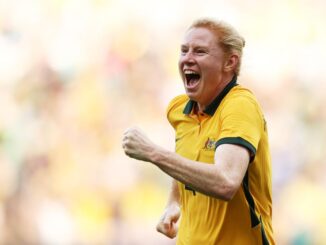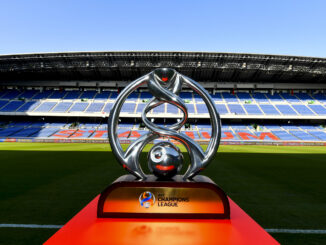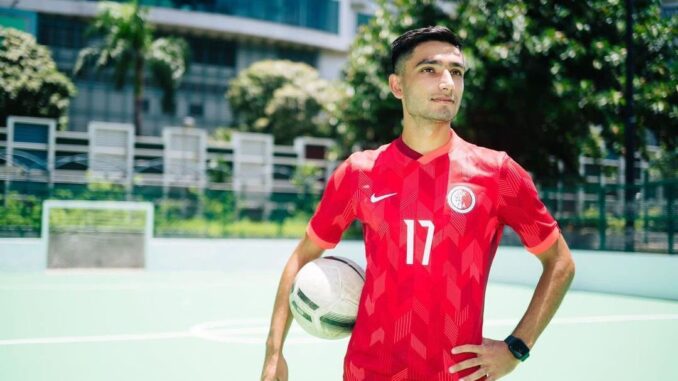
Like many young children growing up in cricket-mad Pakistan, Jahangir Khan wanted to be just like superstar cricketer Shahid Afridi.
Born in Attock, a city of just 146,000 in a country of 243 million, Khan describes being born with a bat in his hands. Like in neighbouring India, cricket is a religion in Pakistan, and players like Afridi are considered gods.
Khan, now 21, has vivid memories of playing the sport with his friends all day, every day in his small village – much to the annoyance of his grandfather.
“We just played around (the village) every single day,” he recalled.
“We (would) wake up we play cricket, cricket, cricket. My grandfather always told us like ‘don’t play, here you guys are too annoying, just do some work rather than playing cricket’.”
Khan never did become the next Afridi. In fact, he no longer plays cricket at all. His dreams are now different, although they still revolve around a round ball.
You see Khan just made his footballing debut for Hong Kong, helping the city-state qualify for the AFC Asian Cup for the first time since 1968.
Khan arrived in Hong Kong in 2010 aged just ten, not able to speak a word of either Cantonese or English, but cricket still dominated his thoughts. He still wanted to be a cricketer.
As a result of colonial rule, cricket is a fledgling sport in Hong Kong – with the Hong Kong Cricket Association holding associate member status with the International Cricket Council. Having set up a new life in the city-state, Khan’s dreams became about representing his adopted home rather than his native Pakistan.
“Once I moved my mind was just to play cricket,” he said. “And then I when I was here I wanted to play cricket and represent Hong Kong as a cricket player.”
But along the way, a different round ball slowly took over Khan’s life.
Fast forward a decade and Khan, now a Hong Kong citizen, is now a fully fledged international having made his debut for Hong Kong during the recent conclusion to AFC Asian Cup qualifying.
Two wins against Afghanistan and Cambodia were enough for Hong Kong to secure their first qualification for the Asian Cup since 1968.
“It’s a big thing in Hong Kong,” Khan explained.
“The fans are celebrating, everyone is really happy that they qualify for after 55 years. I think it’s a very big step towards the future and then what Hong Kong national team has achieved in this AFC (Asian Cup) qualifying round, I think this is what the Hong Kong fans deserve.
“Once we qualified, all over Hong Kong, I was seeing the news and everywhere they were celebrating and they were very happy. So this is a big thing for Hong Kong national team and for the future of Hong Kong and I’m very proud to be part of this.”
It remains to be seen where next year’s Asian Cup will be hosted, after China withdrew from hosting earlier this year as the country continues to struggle to shake off the effects of the COVID-19 pandemic.
But wherever the tournament is, Khan is dreaming of what might be possible for Hong Kong under their new coach, Jorn Andersen.
“Now that we qualified, we cannot only think that because we are here or we qualified, that we can relax. We have to think of (taking) the next step.
“We (have) started to understand the style of the coach, because the style with Coach Anderson is to attack more, press the opponent and make them make a mistake, so that we can score more goals.
“We can’t just sit there for 90 minutes defending all the time. So I really enjoyed playing under him and his style, especially because I play forward, so I also prefer to get more ball and then try to attack rather than always defending.”
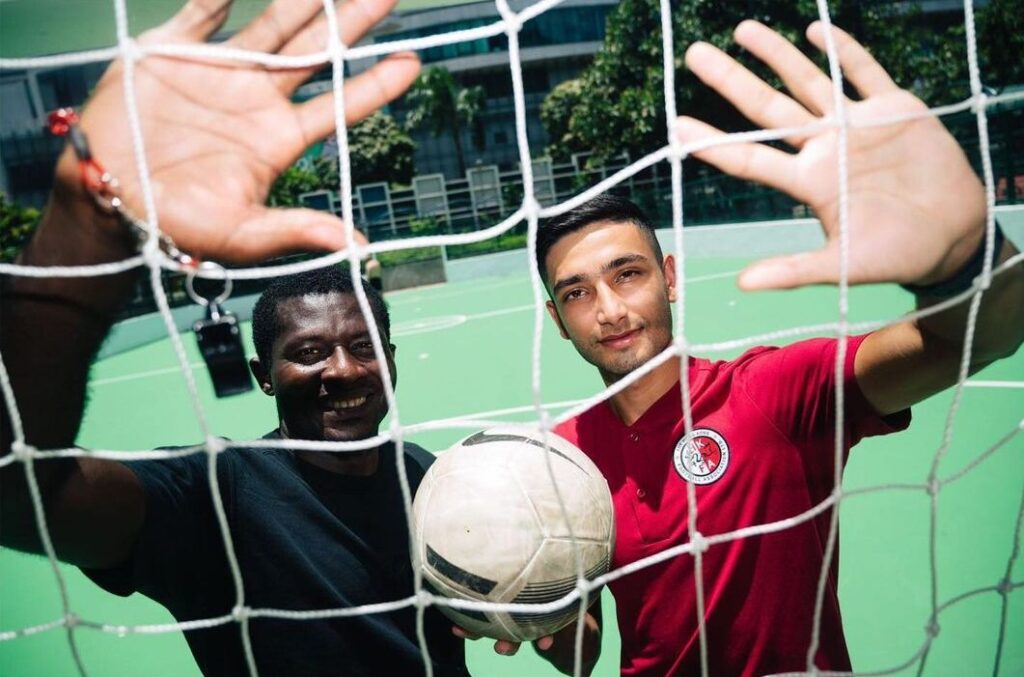
Khan’s story is a unique one in the history of Hong Kong football.
Introduced to football by a friend, Khan first began playing for a local club, All Black FC, that gave refugees and migrants, like Khan, a place to play and a place to feel welcome in a city that can at times be hostile to new arrivals.
“In the beginning, it was quite difficult,” he explained.
“I think the first thing here was the language problem. From when I was in Pakistan and arrived here, I was not be able to speak English or Cantonese. Nothing. So at that time it was quite difficult to get things right and in the right way.”
That’s where a club like All Black FC played such a pivotal role in helping Khan settle in, especially important as an impressionable teenager trying to find his own sense of self and belonging.
“This club welcomes anyone, they don’t see your skin color,” Khan explained.
“They don’t they Want to, you know, say Oh, white people, black people anything nothing, there is no racism or anything, they always welcome any, any any skin color people.”
As challenging as he may have found adjusting to life in the hustle and bustle of Hong Kong he is forever grateful for the opportunities life in the city has afforded him and his family.
“Hong Kong has given me a lot of a lot of opportunities to chase my dream,” he said.
“Coming here, people from our community mostly can’t chase their dreams, because they’re all from different background, it’s very different from local people here, mostly our people come here just to work and earn money.
“But then for me, I always say that I’m very lucky to be part of this and getting these opportunities rather than, you know, going out and working, not chasing my dream and working for someone else. So I’m always thankful for these opportunities.”
The Asian Game’s Michael Church, himself a resident of Hong Kong for many years, understands the significance of Khan’s call up to represent Hong Kong and what it means to the large South Asian community within the city.
“It’s fascinating because there is a there is a fairly large community in Hong Kong from the subcontinent,” he told The Asian Game podcast.
“But they’re largely invisible. They do a lot of, for example, a lot of delivery drivers in Hong Kong will be people from the subcontinent; Pakistanis, Indians who really have very deep roots within Hong Kong society in general.
“There is a big population from that part of the world historically in Hong Kong, as is the same case in other city-states or nations around the region, like Singapore, like Malaysia, where you have that historical British colonial legacy.
He continued: “Obviously Jahangir’s story is slightly different in than he wasn’t born in Hong Kong, but to give that community some visibility in the sporting realm in Hong Kong is quite significant.
“We’ve talked about this before, Hong Kong is a football city. It’s far and away the most popular sport within within the territory, but folks from that community when they play any sport within Hong Kong, invariably (they) drift towards cricket, as is often the case around the world.
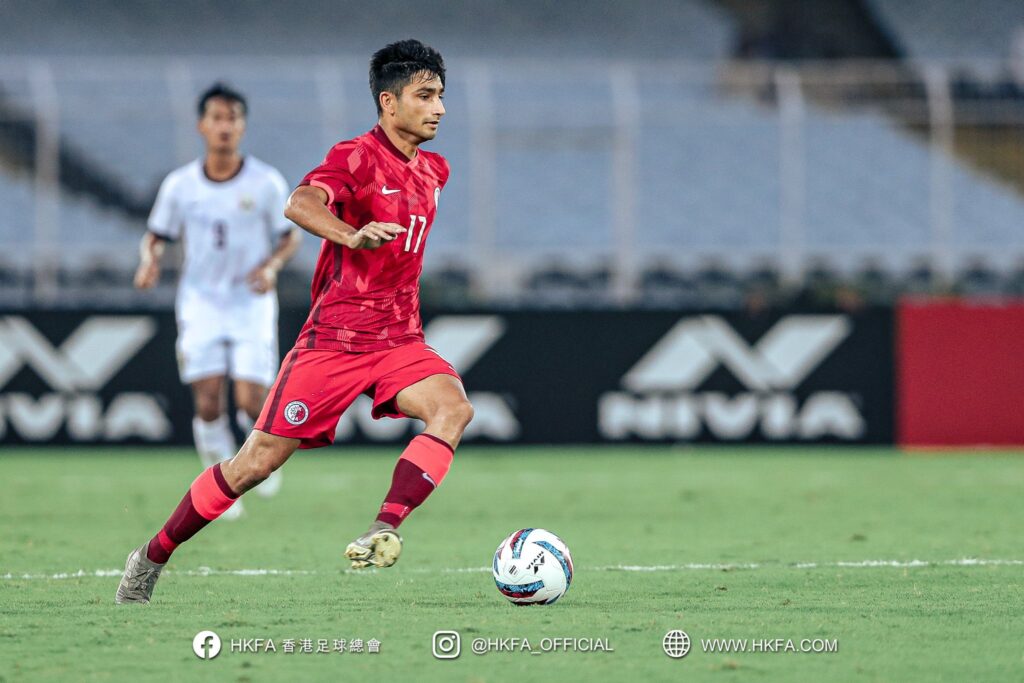
“And you look at the Hong Kong representative team on the cricket side, and you will see many lads that are of Pakistani background, of Sri Lankan background, of Indian background playing cricket, but you don’t see it very often in football, it’s very much local Hong Kong-Chinese, naturalised mainland Chinese, mixed race, or naturalized Brazilians or Spaniards who have moved here maybe 10 years ago.
“The team has always been a bit of a mixture of those elements, so to have this community, which as I say is a community which is quite large, but is largely on the fringes of Hong Kong society, it’s significant and it’s great to see.”
Khan hopes his visibility as a member of the Hong Kong team will help change attitudes and shape a different future others in his community.
“To be honest, I think me representing (the) South Asian community can change something (aboit) the way Hong Kong people look to South Asian people in Hong Kong,” he said in hope.
“As we all live in Hong Kong, we are all Hong Kongers. From there, I think this big step for me and my community to stay together and then help to make Hong Kong proud, to be part of this beautiful city.
“I think this can help more of my community people when they look at me or someone from our our community playing and representing, and then some parents might also think in a positive way and support their children. So I just want to send them the message to let them know to chase their dreams.”
Photo: IG/_jkhan19_
Listen to the full interview with Jahangir Khan from Episode 87 of The Asian Game podcast


